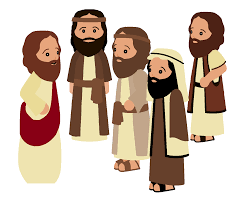John 13:1 – Now before the feast of the Passover, when Jesus knew that his hour had come to depart out of this world to the Father, having loved his own who were in the world, he loved them to the end.
Another Passover feast was at hand. Passover itself had been observed for hundreds and hundreds of years beginning when the Jews first left Egypt. Ever since that time great multitudes of Jews have participated in the ceremony in which an innocent, unblemished lamb was slain and its blood spread/sprinkled upon the brazen altar for the forgiveness of sin.
 But this particular Passover was going to be different. In a sense, it would be the last one, because the ultimate purpose/fulfillment of the ritual was about occur – Jesus would die for the sins of the world. From that moment forward, his blood has purchased atonement for the sin of every man, woman and child who trusts in him as Savior.
But this particular Passover was going to be different. In a sense, it would be the last one, because the ultimate purpose/fulfillment of the ritual was about occur – Jesus would die for the sins of the world. From that moment forward, his blood has purchased atonement for the sin of every man, woman and child who trusts in him as Savior.Therefore, mankind no longer needs to participate or observe the Passover by slaying a lamb. Instead, we can now celebrate each Passover with the utmost rejoicing and joy as we contemplate the new life we have in Christ Jesus.
Many times during his life on earth Jesus declared that his time to die had not yet come (John 2:4, John 7:6, John 17:26). Now he knows with equal certainty that the appointed time for his great sacrifice was at hand; he would soon leave earth and sit down at the right hand of his Father:
Hebrews 12:2 - Looking unto Jesus the author and perfecter of our faith; who for the joy that was set before him endured the cross, despising the shame, and is seated at the right hand of the throne of God.
Yet, even on the very threshold of his suffering, Jesus was not thinking of himself. He was concerned with the welfare of his followers after his death; this was going to be an extremely difficult time for them. His concern came from the intense love which he had for them.
There can be no question that Jesus loved not only his disciples, but every person he ever created. If he didn't, there wouldn't have been any reason for him to come to earth, show us God's love and then die for us. So we know for a certainty that he loves us (I John 4:9).
 But John goes even further. He stresses that Jesus loved his disciples 'unto the end'. This phrase is only used rarely in scripture and the general meaning is 'to the fullest degree' or 'up to the limit'.
But John goes even further. He stresses that Jesus loved his disciples 'unto the end'. This phrase is only used rarely in scripture and the general meaning is 'to the fullest degree' or 'up to the limit'. In other words, Jesus couldn't possibly love us any more than he already does! He demonstrated that love by dying for us while we were still sinners (Romans 5:8). He continues to love each one of his children completely and fully. And since Jesus came to show us the Father, we can rest assured that God's love for us is just as intense and unwavering. Nothing here on earth can compare with the love of God.
John 13:2 – During supper, when the devil had already put it into the heart of Judas Iscariot, Simon's son, to betray him.
Use of the word 'already' confirms the details provided by the other gospel writers. Specifically, Judas allowed Satan to enter his heart before the Passover meal.
Is it possible to surmise the hour in which temptation overcame Judas? Obviously, we cannot know for sure. However, it could have occurred shortly after the incident at the house of Simon the leper (in Bethany) when Mary anointed Jesus (see our discussion of John chapter 12). As you recall, Judas was furious that the money for the ointment was not put in the community collection bag where he had the ability to steal it. This was an ideal time for Satan to tempt him.
Let's talk about temptation for just a minute.
We all have fallen natures; we are all born into sin. But we are not all affected by it in the same way. For instance, one person might be grievously tempted by lust, while the next person never bats an eye when confronted with sexual images/thoughts. Another can be tempted with envy every single time they see something their neighbor owns, but they have absolutely no propensity towards lying at all. My point is that each one of us has specific areas in which we are more likely to fall into temptation. Satan knows what those areas are, and he will exploit your weaknesses every time he gets a chance.
In the case of Judas, greed was one of his main weaknesses; he had an inordinate love for money. We know that he was stealing from the ministry. We also know that he felt Mary 'cheated' him out of a large sum of money when she anointed Jesus with her expensive oil. We know he was angry enough about it to accuse her in front of everyone at dinner, and receive a rebuke from Jesus. This probably angered him even further.
Now consider this for a minute: Satan is not stupid. He is not going to bait you with a sin you aren't interested in; it would be a waste of his time and effort. In this case, Satan was well aware of Judas' weakness in the area of greed. Hence, as Judas left the house of Simon burning with anger over being 'cheated' out of some money, Satan saw his opportunity. He baited/tempted Judas to indulge in his greed. As an added bonus, Judas could be the tool Satan needed to kill the Son of God (or so he thought).
He may have introduced thoughts like these into Judas' mind:
I am being treated so unfairly! Who is Mary anyway? She had no right to waste that oil. I deserved to have that money; it should have been mine. I wanted to use it for ___. I'll show them. I can get even. I know the Pharisees will pay me good money just to find out where Jesus is. I can probably name any price and they will pay it!
Here is something else to consider: Judas can't control what Satan does. He can't stop the evil one from tempting him by putting evil thoughts/pictures/ideas into his mind.
But Judas CAN control himself. He has a choice to make. He can listen to the lies of Satan, which encourage him to indulge in the sin that already burns within his heart. If he does, he will be hooked by Satan just like we would hook a fish:
James 1:14 - But every man is tempted, when he is drawn away of his own lust, and enticed.
Or, Judas can decide to deny his lust for money, submit himself to God and resist the devil. He can choose to reject his feelings of anger/injustice and concentrate on loving others just as Christ loved him. He can choose to let go of his greed by reminding himself that God sent his Son into the world to give him a gift that no amount of money could ever buy – eternal life with God. If Judas makes this choice, the devil will run away from him:
James 4:7 - Submit yourselves therefore to God. Resist the devil, and he will flee from you.
What can we learn from this?
- Be honest with yourself about your weaknesses. I know the areas in which I am most likely to sin, and you know yours. Do not mess around with these sins. Don't make the mistake of thinking you can play with them, or keep them 'under control'. You can't. If you touch them, you will get burnt!

- Decide in advance how you will handle temptation. As we mentioned, we cannot control what Satan does; he is going to tempt you. You could be going about your daily life when all of a sudden a temptation comes out of nowhere and catches you off guard. If you are prepared, you will be more likely to overcome the temptation. For instance, you could memorize scriptures that deal with your temptation, and quote them as the need arises.
- Avoid putting yourself in a vulnerable place. For example, if you have a tendency toward lust, make sure you are not alone with a person of the opposite sex. If you have a propensity to steal, don't to shopping alone; take a friend along with you. If you can't stop gossiping, avoid associating with others who also have that problem.
Remember, Satan is ready to destroy us through temptation, just as he did to Judas.
John 13:3-4 – Jesus, knowing that the Father had given all things into his hands, and that he had come from God and was going back to God, he rose from supper. He laid aside his outer garments, and taking a towel, tied it around his waist.
Jesus is coming to the end of his earthly race. He is on schedule to complete the work of grace/redemption within the next few days.
- He knew that he had come from God and that his Father had given him supreme authority over all things (Ephesians 1:22, Romans 14:11, Philippians 2:9-10, etc).
- He knew that he was about to be honored by his Father.
- He knew that he was returning to the splendor and glory that were his before the world was made.
- He knew that all power in heaven and earth had been given to him (Matthew 28:18).
And yet, one of the very last things he did was an act of utter humility – he washed the feet of his disciples. The one who deserved to be served was serving others.
If we didn't know any better, we would be astonished that Jesus would engage in such an act of humility. However, we are not surprised by this; scripture reveals that Jesus exemplified the heart of a servant during his entire time on earth. He truly 'practiced what he preached'.
Luke 22:27 - For who is greater, he that sits at table, or he that serves? Is not he that sits at table? But I [Jesus] am among you as he that serves.
As we just noted, Jesus is about to return to heaven and the unimaginable glory that is rightfully his. So why would he abase himself by washing the dirty, stinking feet of these working class men?
 For one thing, the action testifies to the love that he had for his disciples. When you love someone and your entire heart belongs to them, you can endlessly give of yourself to them. You can be tender, patient and forgiving even on the tenth or hundredth time they mess up. This describes the relationship Jesus had with the twelve.
For one thing, the action testifies to the love that he had for his disciples. When you love someone and your entire heart belongs to them, you can endlessly give of yourself to them. You can be tender, patient and forgiving even on the tenth or hundredth time they mess up. This describes the relationship Jesus had with the twelve.The disciples made lots and lots of mistakes, but once Jesus called them into fellowship with himself, he always took care of them. Because of his intense love for them, he never cast them aside, no matter what. He patiently put up with their child-like thoughts and actions. He corrected their mistakes and helped them grow in their faith. He laughed with them, cried with them and scolded them when they needed it. I like to think that Jesus pictured them as the perfect people he knew they would become in the next age.
The intense and complete love that Jesus (and hence the Father) exemplified for the twelve did not stop there; God loves all of his true children (including you) in the same way. We can rest assured that despite all of our failures and short comings, Jesus still loves us just as completely as he did the twelve. In fact, Jeremiah assures us that his love for us is everlasting:
Jeremiah 31:3 - The LORD hath appeared of old unto me, saying, Yea, I have loved thee with an everlasting love: therefore with loving kindness have I drawn thee.
In fact, the apostle Paul assures us that absolutely nothing can separate a believer from the love of God (Romans 8:35-39).
John 13:5 – Then he poured water into a basin and began to wash the disciples' feet and to wipe them with the towel that was wrapped around him.
Many scholars consider Jesus' washing of the disciples' feet to be a representation or picture of his whole mission on earth. He was equal to God; all things were his. But he rose from his table in glory, laid aside his robes of light, girded himself with our nature, took upon himself the form of a servant and ministered to us by pouring out his blood, which washes away our sin.
Thus, we see the washing of the disciples' feet was not just an act of love, it was an example of humble service/ministry. What about us? Are we humble servants to others? Do we minister to those we consider 'beneath' us? Or just to those we think deserve it?
You don't have to read the Bible very much to realize that God hates pride. That message is prevalent in both the Old and New Testaments (Proverbs 16:18). If you still haven't conquered pride in your life, you need to consult Holy Spirit about this issue immediately.
The truth is none of us have any reason/basis to be proud. ALL of us have sinned and come short of the glory of God. ALL of us are sinners saved by grace. None of us have reached perfection. In the light of Jesus' example of pure humility, how can we hold on to even a small amount of pride?
Remember, all twelve of the disciples were at dinner that day, including Judas Iscariot. That's right – Jesus even served the one who betrayed him.
If we are going to effectively share the gospel, we must be willing to meet and interact with people where they are at - spiritually, physically, socially and even politically. This is going to require us to relate to people who don't think, look, or act like we do. It requires us to rub shoulders with people actively steeped in sin, without passing judgment on them. Can we humbly minister to them as lost souls without condemning them? If not, how can we minister the love of Christ and/or the gospel message to them?
John 13:6 – He came to Simon Peter, who said to him, "Lord, do you wash my feet?"
According to our way of thinking, we would never expect a person of high rank to serve someone of a lower rank. We consider it beneath their dignity and station in life to do so.
In the relationship between Jesus and the disciples, Jesus was the person of high rank. The disciples loved, respected and believed in him as their Messiah. They acknowledged that he was the Son of God. They considered Jesus their teacher and master. They knew Jesus was sinless while they themselves were certainly not (Luke 5:8).
Accordingly, it never even crossed their minds that it would be proper for Jesus to wash their feet. The very thought was shocking and confusing to them, as confirmed by Peter's question.
What Peter didn't know (but was about to find out), was that the act of foot washing was an earthly picture of spiritual washing/cleansing from sin. Therefore, it was most proper for Jesus to wash their feet. In fact, spiritually speaking, he was the only one that could!
John 13:7 – Jesus replied, "You do not realize now what I am doing, but later you will understand."
What are the implications of Jesus' reply to Peter? Clearly, Jesus wants Peter to obey him, even though he does not fully understand what is happening. Wow! We could produce a whole series of lessons just on this concept alone!
Consider your own life. Has there ever been a time that you did not understand the circumstances that God called you to walk through? Or a time when you did not understand why you were subjected to a fiery trial? Or a time when you did not see anything good result from your ordeal?
In such cases, we must heed the command of Christ. We must accept and submit to the will of God, even though we don't see the whole picture. Remember, God knows all things; he knows how things will end before they even start:
Isaiah 46:9-10 - Remember the former things of old: for I am God, and there is none else; I am God, and there is none like me, declaring the end from the beginning, and from ancient times the things that are not yet done, saying, My counsel shall stand, and I will do all my pleasure:
Not only does God know all things, he is in control of all things. As we discussed in our earlier posts, your suffering will have an eternal purpose. God fully loves you. He would not make you endure suffering unless there was a purpose behind it.
Also, God will make absolutely certain that you make it through that trial because he will be right there with you in the midst of it!
Isaiah 43:1-2 - But now thus says the LORD that created you, O Jacob, and he that formed you, O Israel, Fear not: for I have redeemed you, I have called you by your name; you are mine. When you pass through the waters, I will be with you; and through the rivers, they shall not overflow you: when you walk through the fire, you shall not be burned; neither shall the flame scorch you.
If you stop and think for a moment, you will conclude that the Christian walk has always been a matter of faith, not sight. For example, Abraham obeyed the command of God to leave his home land and wander around like a pilgrim, with no permanent dwelling place.
Hebrews 11:8-9 - By faith Abraham, when he was called to go out into a place which he should later receive for an inheritance, obeyed; and he went out, not knowing where he went. By faith he sojourned in the land of promise.
Although he did not understand it at the time, he was walking what would later be known as the Promised Land or the nation of Israel!
At some point in your life, you will have to obey the voice of God even though you don't understand what he is doing in your life (just like Peter or Abraham). The only thing I can tell you is that in the end, you will see what God accomplished through your obedience, and it will be something amazing!
Let me offer you some relief:
Our love for one another can wax or wane depending on how we feel at any given moment. It can change depending on how someone else treats us. Plus, the intensity of our love often varies when people don't meet our expectations. Clearly, our love can be fickle and undependable.
 But let me offer you some relief - that is not the case with Jesus. He loves his followers 'to the end' or to the fullest possible degree. His love for you is not based on the kind of 'day' that he is having. His love for you does not change if you fall into sin or fail him in some way. So when you do mess up, run back to Jesus with confidence. There is no sin he won't forgive.
But let me offer you some relief - that is not the case with Jesus. He loves his followers 'to the end' or to the fullest possible degree. His love for you is not based on the kind of 'day' that he is having. His love for you does not change if you fall into sin or fail him in some way. So when you do mess up, run back to Jesus with confidence. There is no sin he won't forgive.
Let me offer you some encouragement and strength:
There is a very common and vulgar saying in the world today: 'Life is a bxxxh, then you die'. That may be a true saying for unbelievers but not for those of us in Christ.
Yes, we will experience fiery trials and intense temptations. Yes, we will walk through some difficult circumstances, which we may or may not fully understand. But we can be encouraged and strengthened knowing that the end result of these difficulties is the most precious gift of all – salvation for ourselves and others (I Peter 1:1-9).
